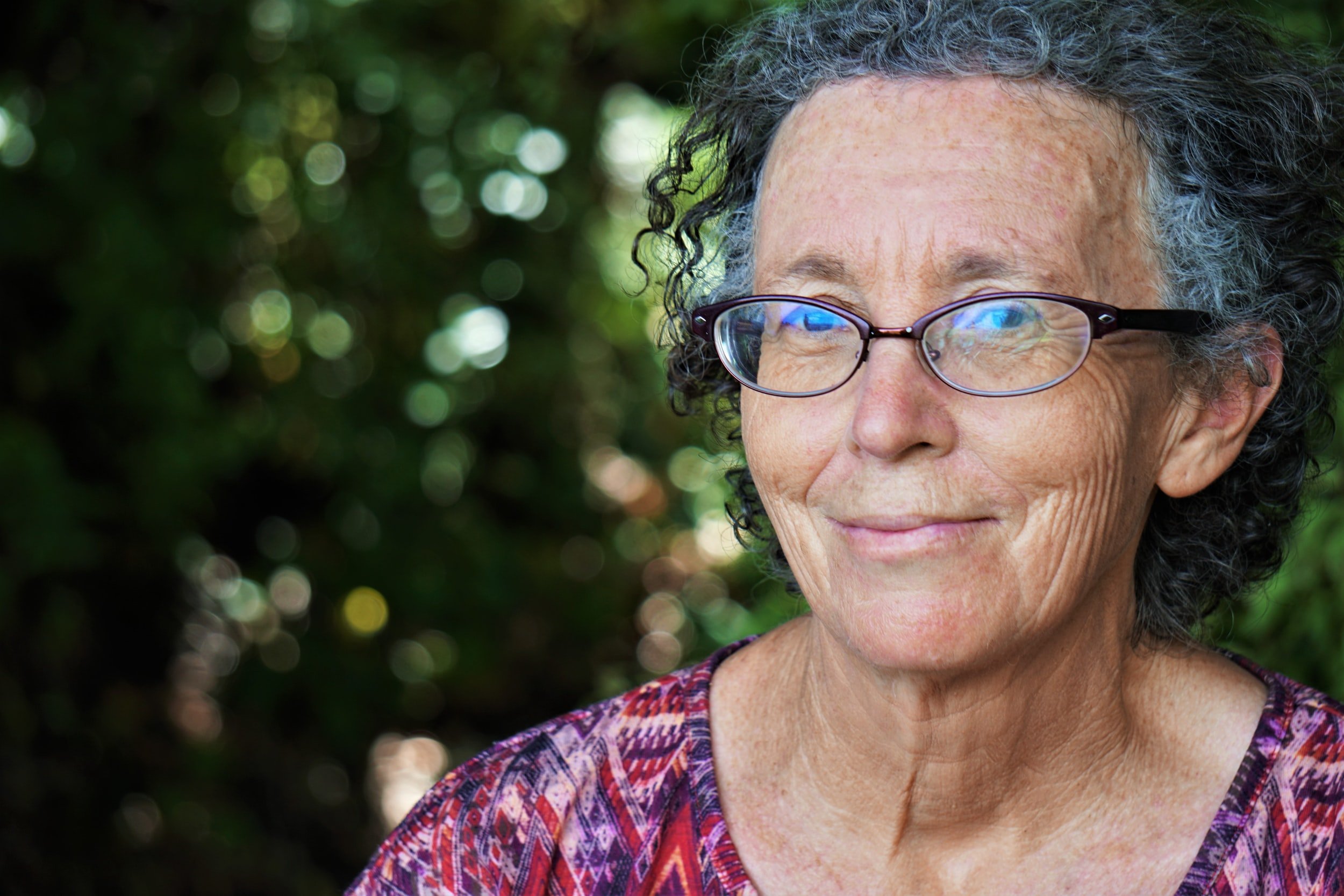Considerations for Co-Constructing Research with Older People
by Becky De Oliveira, Ph.D. and Maria K. E. Lahman, Ph.D.
Becky De Oliveira defended her dissertation title “I just want to play:” Methodological considerations for including older adults and co-creation of research with a focus on the meaning of activity for residents of a 55 plus active adult masters planned community in the area of research methodology at the end of June 2022. Maria Lahman, a qualitative methodology professor at the University of Northern Colorado, CO, USA, was one of Becky’s dissertation co-chairs. Maria served as a Methodspace Mentor in Residence in November, 2021, for Academic Writing Month.
Along with her full dissertation which will be in ProQuest, you can find some of Becky’s research in this area in Maria’s forthcoming textbook with SAGE Publishing—Culturally Responsive Qualitive Research. See Maria’s books, Writing and Representing Qualitative Research, and Ethics in Social Science Research: Becoming Culturally Responsive. If ordering her books from SAGE, use the code MSPACEQ322 for a 20% discount from 1 July – 30 September.
“What is a life for?”
—older research participant
Including research participants as co-constructors (e.g., co-creators) of research is somewhat new (Fudge et al., 2007). There is growing enthusiasm for this kind of involvement among those who fund research with the goal “to do research ‘with’ people rather than ‘to’ or ‘for’ them” (Boylan et al., 2019, p. 722). Inviting the participation of older adults in research gives findings more credibility (Thompson et al., 2009), with Forster et al. (2021) stating that “academics increasingly accept that inclusivity may increase the relevance and applicability of the research” (p. 2).
Although older adults have amassed years of important contributions to society, they are still the focus of negative and damaging attitudes (Coleman & O’Hanlon, 2017). Older adults in many cases have vast professional experience that they can contribute in various ways. One way of addressing the under-utilization of older adults is by including them “as partners” in research, “to be consulted first through interviews, focus groups or with full representation as consultants” (Coleman & O’Hanlon, 2017, pp. 94–95). Stuen and Kaye (1990), for instance, reported on the contributions of retired university faculty that “utilized a vast, untapped reservoir of expertise” and “provided a valuable community service as well” (p. 25). Despite the many reported benefits of involving people in research on topics that affects their lives, Blair and Minkler (2009) point out that older adults are rarely included in research as “prominent partners” (p. 651).
Most research involving older adults has focused on areas like healthcare (Fudge et al., 2007). While co-creation has not been traditionally been well-used in gerontology (Fortune et al., 2015), but the field is increasingly moving toward involving older adults in research creation (Goulding et al., 2018). Weil (2015) argues that “older persons should be seen as stakeholders” (p. 725) and actively participate in study design. Research design on older adults without their inclusion is what Ross et al. (2005) call “cake without the icing” (p. 274). Forster et al. (2021) cite a “moral imperative to involve individuals and communities who are the focus of research about them” (p. 2). As “insiders” into their own experiences, older people have information— “expertise by experience”—that other researchers can never have (Devotta et al., 2016, p. 664).
Barriers to Older Adults as Co-Creators of Research
Figure 1: Community Trail at Sequoia Heights
While the benefits of a researcher involving older adults are largely acknowledged, the relatively recent nature of their inclusion leaves many questions about how best to involve them in ways that they find meaningful and that use their knowledge and skills to best advantage. Littlechild et al. (2015) point out that most research studies “are conducted by academic researchers who tend to emphasize the positives based on retrospective narrative accounts, rather than critically appraising” the effects of the participants (p. 19). In other words, they focus on the outcomes and not how participants have contributed to the findings. Previous research demonstrates that including participants as co-creators of research “does not unproblematically guarantee better data, improved understandings, democratizing processes within communities or power-free relations between academic, communities and statutory bodies” (Roy, 2012, p. 15). Doyle and Timonen (2009) caution against fully accepting what they call the “moral” argument for encouraging co-creation, arguing that it potentially “obscures the practical implications and realities of involvement” (p. 259). For instance, older adults interviewing within their own community may find that some interviewees are reluctant to talk openly with people they know (Warren & Cook, 2005).
Becky’s Co-creation Research
In Becky’s dissertation, co-creation of research with older adults was examined methodologically and the meaning of activity for older adults living in a 55+ active adult master planned community was examined contextually. During her research Becky lived in a 55+ active adult master planned community called Sequoia Heights (a pseudonym) for six weeks as a participant-observer. Data were 14-day activity journals, extensive observation, in-depth interview with 17 participants, and collaboration in developing and disseminating a survey (N = 57). In addition, most interview participants chose an activity for Becky to participate with them in. Activities yielded fascinating data collection opportunities from long hikes in nature, to beer making session to Becky receiving a manicure from a woman who ran a small spa in her home (see Figure 1 for an example). Methodological findings showed that while some participants expressed willingness to be involved in co-creation of research, many were hesitant, with a focus on other priorities, allocation of time, and lack of interest appearing as key themes.
Figure 1: Community Trail at Sequoia Heights
Through Becky’s research she found that study participants tended to fit into one of these areas regarding co-construction of research.
General Interest: “I’d just like to help.”
Conditional Interest: “I would be open to listening to the opportunities. It would just depend on the time involved, and maybe even my interest . . .”
Minimal Interest: “I just want to play.”
Considerations
We forward the following considerations based on Becky’s research and the methodological literature. Participation exists on a continuum (Suarez-Balcazar, 2020), and regardless of where older adults fall on that scale, there are certain steps researchers can take to better involve them meaningfully.
§ Plan for a preference for talk (e.g., interviews, chatting during observations) over survey and journals. Joyce Weil (2015) points out potential pitfalls in various data collection strategies with older adults, including a dislike for the structure of surveys, with participants wanting instead to “chat” (p. 728). This preference may be drawn on by researchers who are skilled at natural conversations.
§ Pay attention for possible participant or response bias Becky found participant answering the way they thought she would want them to. Some assumed activity only meant strenuous physical activity since they knew Becky is highly active outdoors. Weil (2015) has noted this also indicating older participants will answer according to stereotyped views of how they “should” be (for instance, as a grandparent).
§ Consider Reflexivity Weil (2015) recommends that reflexivity regarding methods take place throughout the study, with the researcher being alert for issues such as sensory perception and other physical changes that impact older adults, such as eyesight, hearing, cognition, and memory. This became an even deeper than usual aspect of the research for Becky when she was diagnosed during the research process with Glioblastoma, an aggressive brain cancer. After several brain operations, months of chemotherapy and radiation, with impacted eyesight that removed her ability to drive—Becky reflected that her life is paralleling that of an older person who has become ill and needs to face mortality clearly. Research participants also had loss and illness during the study which highlights researchers “must be prepared to adapt the study design to the population’s needs” (Jacelon, 2007, p. 72). For example, one gatekeeper had a significant hospital stay during the initial time Becky was corresponding with him.
§ Understand the Age Cohort of Participants (Weil, 2015) The people in Becky’s study ranged in age from early 50s to late 80s. An understanding of which members experience “some general commonalities” with others within the cohort, including certain attitudes and beliefs that are typical for members is helpful. Our grandparents’ generation, for instance, were children during the Great Depression and consequently reluctant to waste anything. The oldest older people, as well as those with health conditions or protective relatives are typically under-studied (Wenger, 2001).
§ Get Advice on Gaining Access Finding older participants can be a challenge, with some older adults being worried about having a stranger in their home or that the interview will involve a sensitive matter they would prefer not to discuss such as drinking, gambling, and sex (Katz, 2005). While women such as Becky are generally seen as less suspicious and more likely to be granted access (Wenger, 2001) Becky was advised not to go door to door in the community so instead used a social networking design indicated by her older gatekeepers.
§ Note Surroundings During Interviews Becky utilized Wenger’s (2001) recommendation to use clues from the homes of older people to guide discussions—asking about photographs or memorabilia as a way of opening dialogue, for instance, and also to make the interview feel like a conversation (good advice no matter the age of the interviewee). Older adults expected information exchange—how many children do you have, for instance, after they have provided the answer to that question themselves. This kind of reciprocity is important in making older adults comfortable enough to share information.
§ Be Comfortable with Friend-like Relationships Some researchers caution against developing friendships with participants, fearing that it will affect objectivity. However, Becky has many friends from different ages and backgrounds and was comfortable with an easy relationship with research participants. As Becky moved through the community someone noted she was “like the mayor of Sequoia Heights” as members greeted her or sought her out to update personal information. After Becky’s cancer diagnoses members also sought her out to express support. Wenger (2001) writes, “My own inclination is to enter freely into such relationships” (p. 273). The main concern is to avoid influencing behavior through friendship and thereby distorting the data. Wenger also advocates for generosity with time, staying longer for a cup of tea or to see something the participant wishes to show. “Many older persons may get few opportunities to chat about themselves. They may be lonely, and they may get a boost to their self-esteem by being able to make a contribution” (p. 275). Since neither neutrality nor objectivity are goals of qualitative research, these kinds of interactions are unproblematic.
§ Anticipate differing perspective on collaborating in research Becky faced this to a small degree with one “gatekeeper,” an 83-year-old man and long-time resident within the community. He had been helping select possible participants and explaining the study to them in a broad way. His interpretation of the study was somewhat different from Becky’s; he viewed “activity” as being strictly related to programs offered within the context of the community. He also preferred to give potential participants only small portions of the overall description of their involvement in order to secure their participation. Becky would tend to favor explaining up front what she would like from them. His communication style resulted in some confusion for potential participants, a few of whom had expected the research to begin immediately. “I am available to be interviewed this morning at 10:00 a.m.,” one woman emailed weeks before the study was approved.
References
Blair, T., & Minkler, M. (2009). Participatory action research with older adults: Key principles in practice. The Gerontologist, 49(5), 651–662.
Boylan, A. M., Locock, L., Thomson, R., & Staniszewska, S. (2019). “About sixty per cent I want to do it”: Health researchers’ attitudes to, and experiences of, patient and public involvement (PPI)—A qualitative interview study. Health Expectations, 22(4), 721-730.
Coleman, P. G., & O’Hanlon, A. (2017). Aging and development: Social and emotional perspectives (2nd ed.). Taylor & Francis.
De Oliveira, B. (2022). “I just want to play:” Methodological considerations for including older adults and Co-creation of research with a focus on the meaning of activity for residents of a 55 plus active adult masters planned community. Doctoral dissertation, University of Northern Colorado.
Devotta, K., Woodhall-Melnik, J., Pedersen, C., Wendaferew, A., Dowbor, T. P., Guilcher, S. J. T., Hamilton-Wright, S., Ferentzy, P., & Hwang, S. W. (2016). Enriching qualitative research by engaging peer interviewers: A case study. Qualitative Research, 16, 661–680.
Doyle, M., & Timonen, V. (2009). Lessons from a community-based participatory research project: Older people’s and researchers’ reflections. Research on Aging 32(2): 244–263.
Forster, J., Tullo, E., Wakeling, L., & Gilroy, R. (2021). Involving older people in inclusive educational research. Journal of Aging Studies, 56, 100906.
Fortune, D., McKeown, J., Dupuis, S., & de Witt, L. (2015). “It was like reading a detective novel:” Using PAR to work together for culture change. Journal of Aging Studies, 34, 38–47.
Fudge, N., Wolfe, C., & McKevitt, C. (2007). Involving older people in health research. Age and Aging, 36(5), 492–500.
Halvorsrud, K., Kucharska, J., Adlington, K., Rüdell, K., Brown Hajdukova, E., Nazroo, J., ... & Bhui, K. (2021). Identifying evidence of effectiveness in the co-creation of research: a systematic review and meta-analysis of the international healthcare literature. Journal of Public Health, 43(1), 197–208.
Littlechild, R., Tanner, D., & Hall, K. (2015). Co-research with older people: perspectives on impact. Qualitative Social Work, 14(1), 18–35.
Partridge, E. E. (2022). We tell our own stories: Older adults as expert researchers. In The Palgrave Handbook of Innovative Community and Clinical Psychologies (pp. 615-630). Palgrave Macmillan, Cham.
Ross, F., Donovan, S., Brearley, S., Victor, C., Cottee, M., Crowther, P., & Clark, E. (2005). Involving older people in research: methodological issues. Health & Social Care in the Community, 13(3), 268-275.
Roy, A. (2012) Avoiding the involvement overdose: Drugs, ethnicity and participatory research practice. Critical Social Policy 32(4): 636–654.
Stuen, C., & Kaye, L. W. (1990). Retired university faculty: Untapped expertise. Adult Learning, 1(4), 25–27.
Thompson, J., Barber, R., Ward, P.R., Boote, J. D., Cooper, C.L., Armitage, C.J., & Jones, G. J. (2009). Health researchers’ attitudes toward public involvement in health research. Health Expectations, 12(2), 209–220.
van den Berg, A., Dewar, B., Smits, C., Jukema, J. S. (2019). Experiences of older adults and undergraduate students in co-creating age-friendly services in an educational living lab. International Practice Development Journal, 9(2), 1–14.
Warren, L., & Cook, J. (2005) Working with older women in research: Benefits and
challenges. In L. Lowes L & I. Hulatt (Eds.), Involving service users in health and social care research. (pp. 171–189).
Weil, J. (2015). Applying research methods to a gerontological population: Matching data collection to characteristics of older persons. Educational Gerontology, 41, 723–742.

















Jessica Lester and Michelle O’Reilly discuss ethics in sensitive research with children and youth, and offer practical tips.